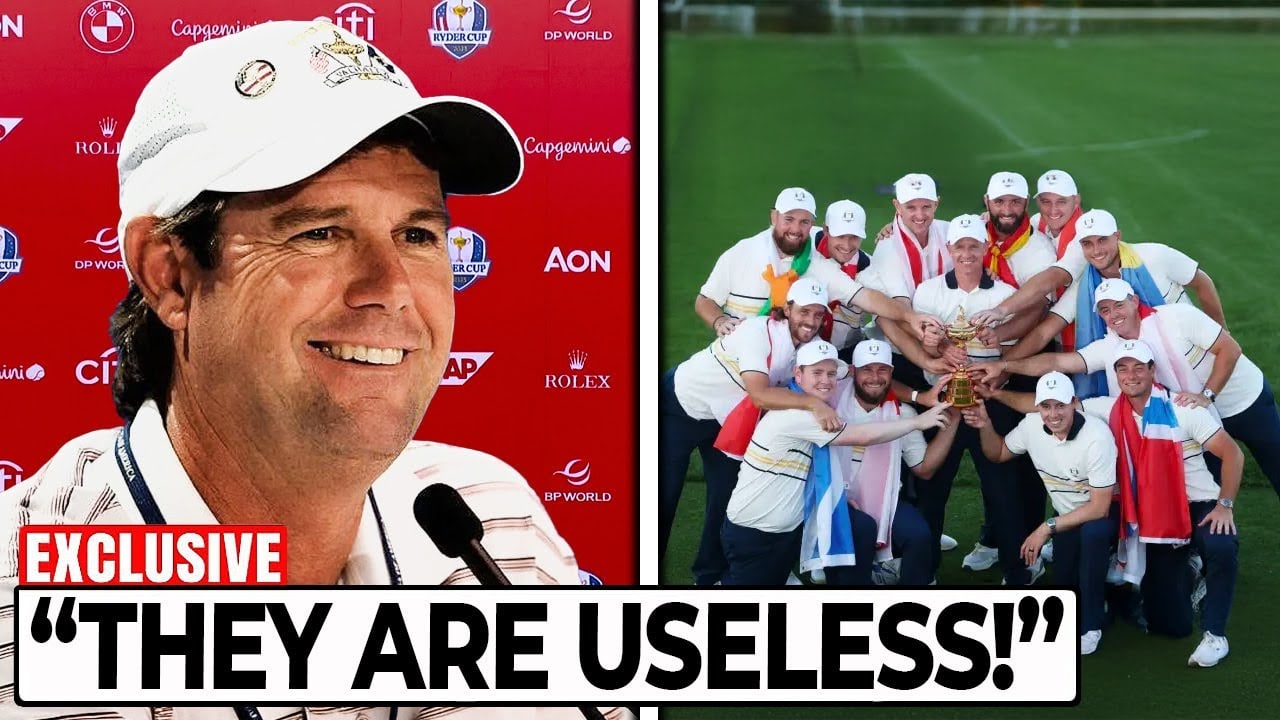Paul Azinger Unleashes Fury Over 2025 Ryder Cup Catastrophe: A Wake-Up Call for American Golf
In a shocking and candid assessment, Paul Azinger, the last captain to lead Team USA to a Ryder Cup victory on home soil, has unleashed a scathing critique of the American golf establishment following their dismal performance at the 2025 Ryder Cup held at Bethpage Black. With Europe retaining the trophy after a 15-13 victory, Azinger’s remarks have sent ripples through the golfing community, exposing deep-seated issues that could jeopardize the future of American golf.

The Ryder Cup, often heralded as a fierce competition of national pride, devolved into chaos at Bethpage Black, where rowdy fans crossed the line from passionate support to outright hostility. Azinger described the atmosphere as a “war zone,” with players like Rory McIlroy and Shane Lowry facing a barrage of heckles and disrespectful behavior. The PGA of America, according to Azinger, lost control of the crowd, leading to an environment that crushed Team USA’s momentum and morale.
But the chaos wasn’t just external; it stemmed from poor leadership decisions within the American camp. Azinger didn’t hold back in his criticism of Captain Keegan Bradley, whom he claimed was thrown into a no-win situation. Selected too soon and lacking experience, Bradley was forced to watch from the sidelines, unable to contribute as a player while also attempting to lead the team. Azinger pointed out that this misstep was a glaring example of the PGA’s failure to understand the unique demands of the Ryder Cup, where chemistry and strategy are paramount.
The former captain lamented the abandonment of the successful “pod system” he implemented in 2008, which fostered unity and trust among players. Instead, Team USA entered the 2025 Ryder Cup devoid of structure, relying on a traditional setup that has repeatedly failed. Azinger emphasized that leadership must prioritize strategy over celebrity, calling for a return to a model that builds genuine camaraderie and support among players.
The fallout from this year’s tournament also highlighted the PGA’s misguided priorities. Azinger accused the organization of prioritizing media hype and ticket sales over the integrity of the sport, resulting in a chaotic atmosphere that detracted from the competition itself. He pointed to the course setup at Bethpage Black, which failed to play to Team USA’s strengths, as further evidence of poor planning and execution.
As the dust settles on this latest defeat, Azinger’s blistering critique serves as a clarion call for change within American golf. He warned that unless the PGA of America reassesses its approach to leadership, course selection, and player dynamics, the team will continue to struggle on the international stage. The Ryder Cup is not merely a contest of skill; it is a test of unity, strategy, and emotional intelligence.
In the wake of Azinger’s revelations, the pressure is mounting on the PGA to act decisively. With the next Ryder Cup set for 2027 in Ireland, the stakes have never been higher. Will American golf heed this wake-up call, or will it remain mired in a cycle of mismanagement and missed opportunities? The clock is ticking, and the eyes of the golf world are watching closely as the future of Team USA hangs in the balance.






